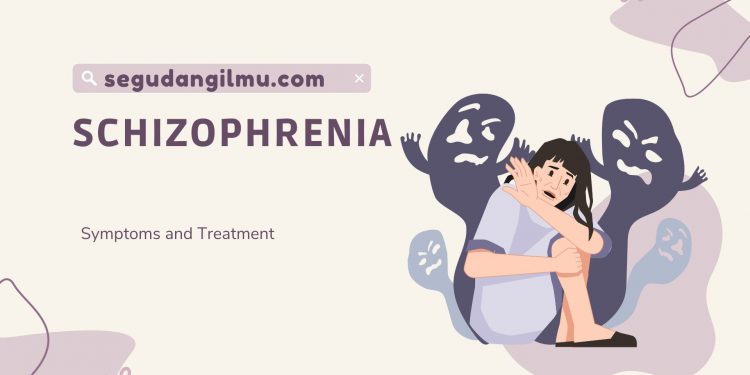Schizophrenia: Symptoms and Treatment—Mental health is always an interesting topic. Various issues related to mental health are indeed of concern because it affects how a person can carry out their daily activities. If in the previous article we discussed how mental health affects physical health, in this article we will discuss one of the mental disorders that should also receive special concern is schizophrenia.
The term schizophrenia may still be unfamiliar to the public but this case is actually found in Indonesia. According to the Basic Health Research conducted by the Ministry of Health in 2018 shows that the prevalence of households with members suffering from schizophrenia mental disorders has increased from 1.7 per cent to 7 per cent. This means that the prevalence of schizophrenia in Indonesia is 6.7 per 1000 households. Steven Zauderer, CEO of CrossRiverTherapy, mentioned that Indonesia has the highest prevalence of schizophrenia in the world. This ranking is certainly alarming because this is not a disease to be underestimated.
What is Schizophrenia?
According to the official website of the National Institute of Mental Health, schizophrenia is a serious mental illness that can affect a person’s thoughts, feelings and behavior. People who are diagnosed with schizophrenia seem to lose their attention to reality, which can be difficult for those around them such as friends or family. Schizophrenia is often described as a type of psychosis by doctors. Psychosis means a person’s inability to distinguish between their thoughts and reality.
What are the symptoms of Schizophrenia?

The official website of the World Health Organization explains that schizophrenia is characterized by a difficulty in perceiving reality and behavioral changes associated with:
- persistent delusions: a strong belief by someone that something is true despite evidence to the contrary
- persistent hallucinations: a sign in which a person can hear, smell, touch or feel things that do not exist
- experiences of influence, control or passivity: a state in which someone’s feelings, impulses, actions or thoughts are not generated by them, but are put into or taken out of their mind by others, or thoughts are transmitted to others
- disorganized thinking: characterized by jumbled or irrelevant speech
- highly disorganized behavior: it can manifest itself as bizarre or aimless behavior, unpredictable behavior and inappropriate emotional responses that interfere with their ability to cope with their behavior
- “negative symptoms” which can be such as a very limited speech, restricted experience and expression of emotions, inability to experience interest or pleasure, and social withdrawal
- extreme restlessness or slowing of movements, maintaining unusual postures
How is the treatment of Schizophrenia?
According to the American Psychiatric Association, there is no cure for schizophrenia, but some treatments can reduce symptoms. Various antipsychotic medications are effective in reducing psychotic symptoms in the acute phase of the illness. It also helps to reduce the potential for future acute episodes and their severity. Cognitive behavioral therapy or supportive psychotherapy can also reduce symptoms and improve functioning. Other treatments aim to reduce stress, support employment or improve social skills. PRS.



